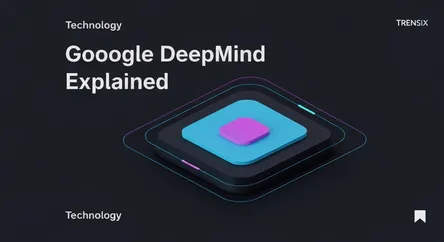Technology
Google DeepMind Explained

Discover Google DeepMind, the AI research lab behind breakthroughs like AlphaGo, and learn how it's shaping the future of artificial intelligence.
What is it?
Google DeepMind is a world-renowned British artificial intelligence research laboratory and a subsidiary of Google. Founded in 2010 and acquired by Google in 2014, its mission is to "solve intelligence" to advance science and benefit humanity. DeepMind is famous for creating AI systems that can learn and master complex tasks without human-coded instructions. Its most notable achievement is AlphaGo, the first computer program to defeat a professional human Go player, a feat once considered a grand challenge for AI. The lab operates at the intersection of neuroscience and machine learning, aiming to build powerful, general-purpose learning algorithms.
Why is it trending?
DeepMind consistently makes headlines for its groundbreaking research that pushes the boundaries of AI. Beyond gaming triumphs with AlphaGo and StarCraft II, its AlphaFold system accurately predicted the 3D structure of proteins, solving a 50-year-old grand challenge in biology. This breakthrough has immense scientific implications. Recently, DeepMind's work on large language models and generative AI, including contributions to Google's Gemini models, keeps it at the forefront of the current AI boom, fueling public and industry fascination with the potential of advanced artificial intelligence.
How does it affect people?
DeepMind's research has tangible, real-world impacts. AlphaFold is accelerating drug discovery and research into diseases by providing scientists with an open database of protein structures. Their AI has also been used to optimize the energy consumption of Google's data centers, reducing environmental impact. In the long run, DeepMind's pursuit of Artificial General Intelligence (AGI) could revolutionize nearly every aspect of human life, from solving climate change and creating new scientific discoveries to transforming healthcare and personal assistants. Its work directly shapes the future of technology that will integrate into our daily lives.